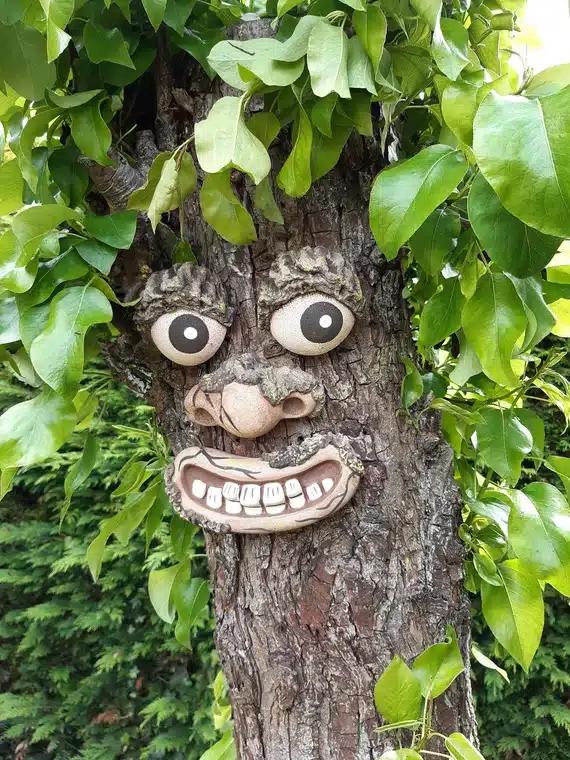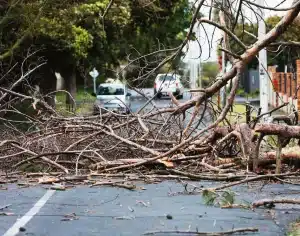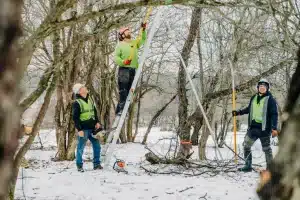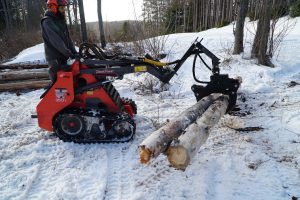Greetings, fellow tree enthusiasts, nature lovers, and those who have recently discovered that landscaping is both an art and a science! Welcome to “Ask the Arborist,” where we tackle your burning questions about all things arboreal with a healthy dose of humor and a sprinkle of sage advice.
Today, we’re delving into the disastrous realm of landscaping gone wrong: the three worst trees to plant in your yard. These suggestions are based exclusively on my own tree prejudices from experiences in the local backyards of Tioga, Potter and Steuben counties. So if you are thinking about planting some trees in your yard this spring, here’s a list of trees you might want to avoid.
Weeping (aka “Whomping”) willow: The drama queen of trees
Ah, yes, the infamous “Whomping Willow.” While its name may evoke visions of magical adventures in the wizarding world, this tree is anything but enchanting. Known for its unpredictable temperament and tendency to “whomp” any unsuspecting passersby, the Whomping Willow is a nightmare for homeowners.
Its roots spread like gossip at a high school reunion, wreaking havoc on foundations, sidewalks and unsuspecting garden gnomes. It’s branches are also notoriously brittle, ready to “whomp” any unwitting pedestrian. Unless you enjoy living in fear of your own backyard, steer clear of this mischievous tree.
Odiferous callery pear: When beauty meets the beastly
You might also recognize this impish arbor as Bradford pear, Cleveland select or Ornamental Pear. This pernicious plant has been misbehaving so much that it was banned as an invasive species in Pennsylvania in 2021.
Though attractive with white flowers in the spring, like the Proverbs 7 woman, beware! Don’t be taken captive by her wiles. This tree’s branches are more fragile than a politician’s promises during election season because after every wind storm my crew is all over the county cleaning up her mess.
But the worst part of all is that the tree stinks — literally! It’s like someone brewed up a potion with rotting fish, week-old cat litter and a hint of skunk essence just for good measure. If your nostrils have had the unfortunate pleasure, you know exactly what I’m talking about. It’s like the tree’s own special brand of air freshener, except it’s anything but fresh.
Generous black walnut: A nutty nightmare
Ah, the black walnut tree, nature’s gift that keeps on giving… and giving… and giving headaches. Picture this: you’re a proud homeowner, dreaming of lush greenery and bountiful harvests in your backyard. So, you decide to plant a black walnut tree, thinking you’ll be the envy of the neighborhood with your homegrown nuts. Little did you know, you’ve just welcomed a botanical tyrant into your life.
First off, let’s talk about the mess. You thought cleaning up after your kids was tough? Try dealing with black walnuts scattered all over your lawn like a squirrel party gone wrong. You’ll spend more time dodging falling nuts than you will admiring your meticulously trimmed shrubbery.
Let’s also talk about the “gifts” the black walnut tree bestows upon its neighbors. You see, it’s not just the nuts you have to worry about. Oh no, it’s the toxins, too. Black walnut trees release juglone, a chemical warfare agent designed to keep other plants in check. Your tomatoes? Toast. Your roses? Wilted. Your dreams of a verdant paradise? Poisoned by the walnut’s diabolical plan for domination.
And the best part? If you decide you’ve had enough and want to get rid of the black walnut tree, good luck. Its roots will cling to your soil like a stubborn teenager to their smartphone. You’ll need a team of landscapers, a truckload of dynamite and maybe a witch doctor or two to banish this arboreal menace from your yard.
So, take my advice, dear homeowner: when it comes to menaces like willows, pears and walnut trees, just say no. Your sanity, your garden and your peace of mind will thank you.
Mike White is an ISA board certified master arborist and owns Treemaster LLC. If you’re interested in learning more about tree related issues, you’ll find him to be moderately obsessed. You can reach him at mike@treemasterllc.com





